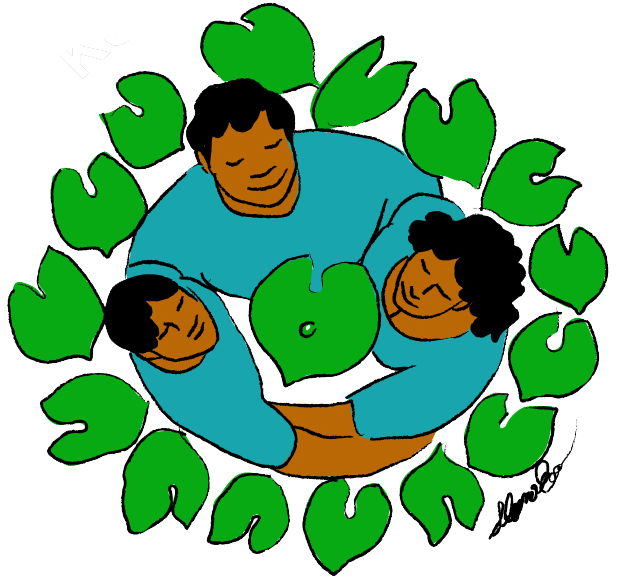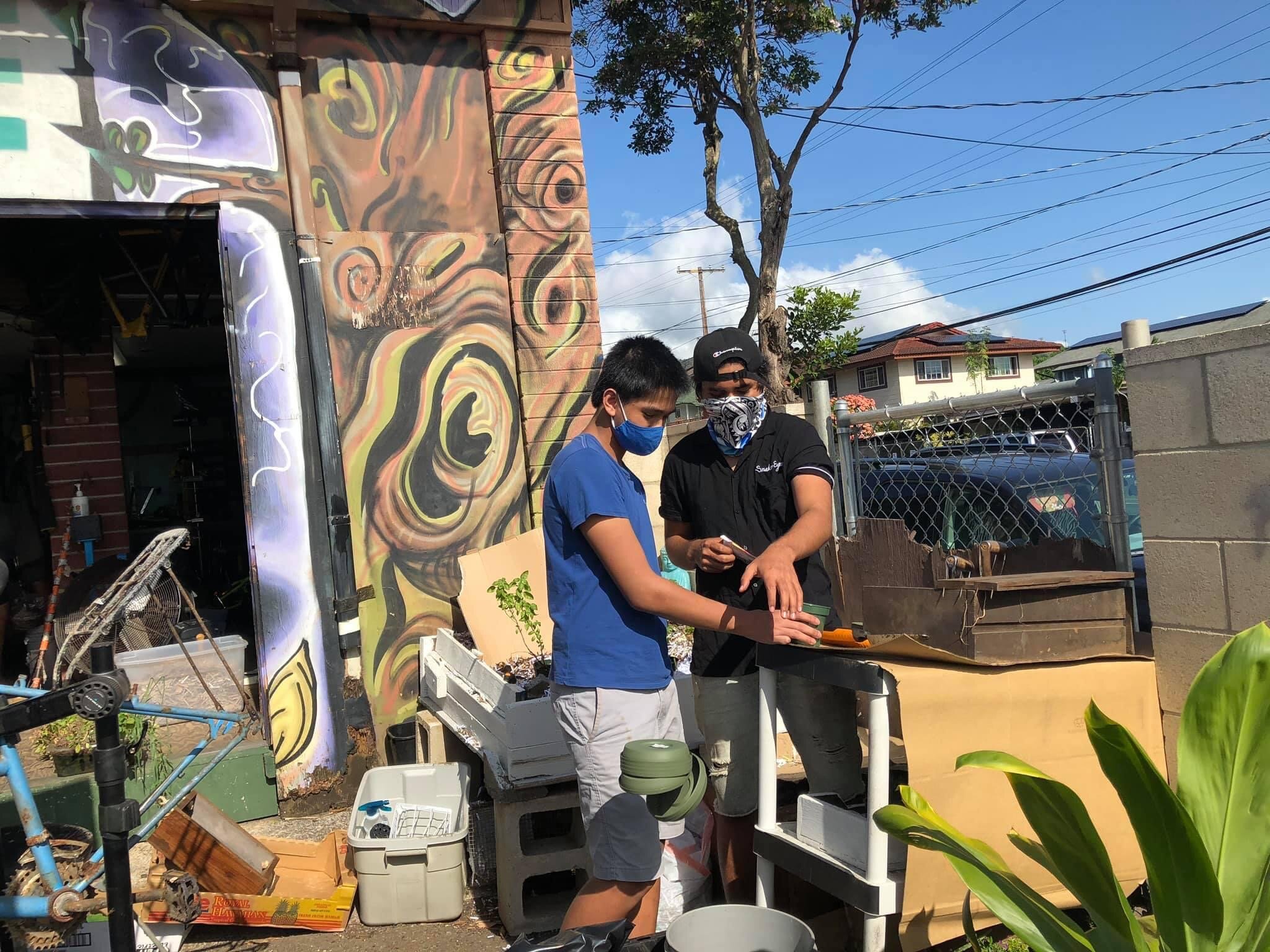Plant Something, Kuya!
The Kalihi Valley Instructional Bike Exchange, or simply KVIBE, is one of KKV’s Youth Services programs. KVIBE teaches its youth how to build bikes and how to build confidence. Individual stories and cultures are uplifted to flourish co-dependently. The older men in the space are referred to as “Kuya,” which in Tagalog is used as a sign of respect when addressing an older male relative. The bike is referred to as their urban wa‘a, the ‘ōlelo Hawai‘i term for canoe. Since its inception in 2005, KVIBE’s curriculum has focused fostering a healthier future for its youth through positive after-school activities that provide a cultural framework to develop and sustain healthy lifestyles and resilient identities.
Our community recognizes that the separation from traditional, agricultural, and environmental stewardship practices is a source of cultural and historical trauma that exacerbates health disparities. The connection to the land is central to one’s identity for many of Kalihi’s Asian and Pacific Island cultures. At the same time, land and culture figure dominantly in residents’ stories of resilience and strength. It is for this reason that KVIBE is slowly rebuilding an urban garden in small raised beds in front of the KVIBE warehouse.
Kuya John-Mark Angei and junior intern Mark Sanchez
Assembling the garden bed with repurposed wood. Carol Ann Carl from KKV’s Grant’s Department asks them to talk about the project.
“A few years ago,” say the two Kuya, “we originally had two beds filled. One bed got destroyed. The one that was left was doing good for a little bit. It was growing lettuce and some fruits. But, you know running a youth program, things can happen. That bed was left alone. After a long time, we decided to make a new one. So, we started fresh. Started actually growing stuff. We even started composting.
Healthy food and food systems - this is what we are after.
“We’re trying to get back to our roots. A lot of us are descendants of farmers. A lot of our cultures have been doing this [for a long time]. When we come over here to [Honolulu], we became separated from all those things that we descend from. Having that garden there reconnects us. The same way these bikes are our urban canoes the garden is like our piece of the 'āina that we bring into this urban space with us.”
surprise Kalo growing in the compost
The KVIBE Kuya and the kids in the program are invested in the new garden. Here’s what they told Carol Ann:
“Gardening is the basis of something really important because learning how to cultivate the earth and grow things out of the ground is fundamental for breaking free of any type of oppressive system. It’s the ability to create your own food out of nothing; to bring forth food from the earth.
We got kalo – and that kalo was an accident! We got our kalo stolen from us before we made the new bed. Then somehow out of nowhere, a kalo started growing out of the compost. Now we have kalo.
We made that compost heap out of shredded paper and rotting apples. We added literal waste and now its growing food. Like an old wooden box, some food waste, and shredded newspaper. We have food and it’s good for our youth.
We are being more conscious about what we’re putting in the garden. The closest things we have are 711 and Jack in the Box and one other gas station. If we can grow our own food we will be able to feed ourselves. We can both grow our physical health and cultivate our mental health. There’s endless studies and science that shows touching the land is good for the brain.”
- Kuya Tlaloc & Kuya Josh
Gardening is cool
Our Dreams for the Urban Garden
“That we get free access to healthy food that we grew. I know it’s going to take a lot of patience to do it. I’m hoping like bananas if we have a chance to. Like veggies because I need to eat more of that.” - Kuya Chico
“For young kids to be able to say ‘I can actually do something. This is something that I did.’ I think that it is important that they are able to experience that sort of victory. Just being able to see something that they made - that they helped grow. Like, that’s just dope.” - Kuya Josh
“Healthy, sustainable revolution.” - Kuya Tlaloc







